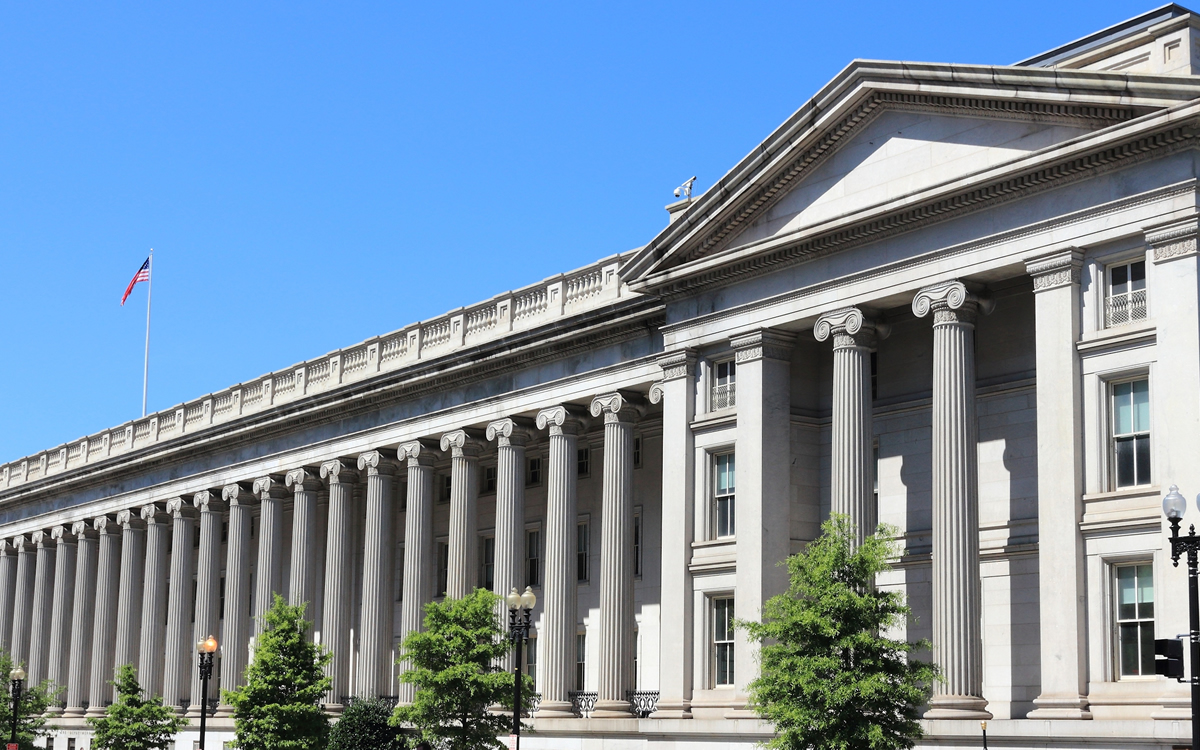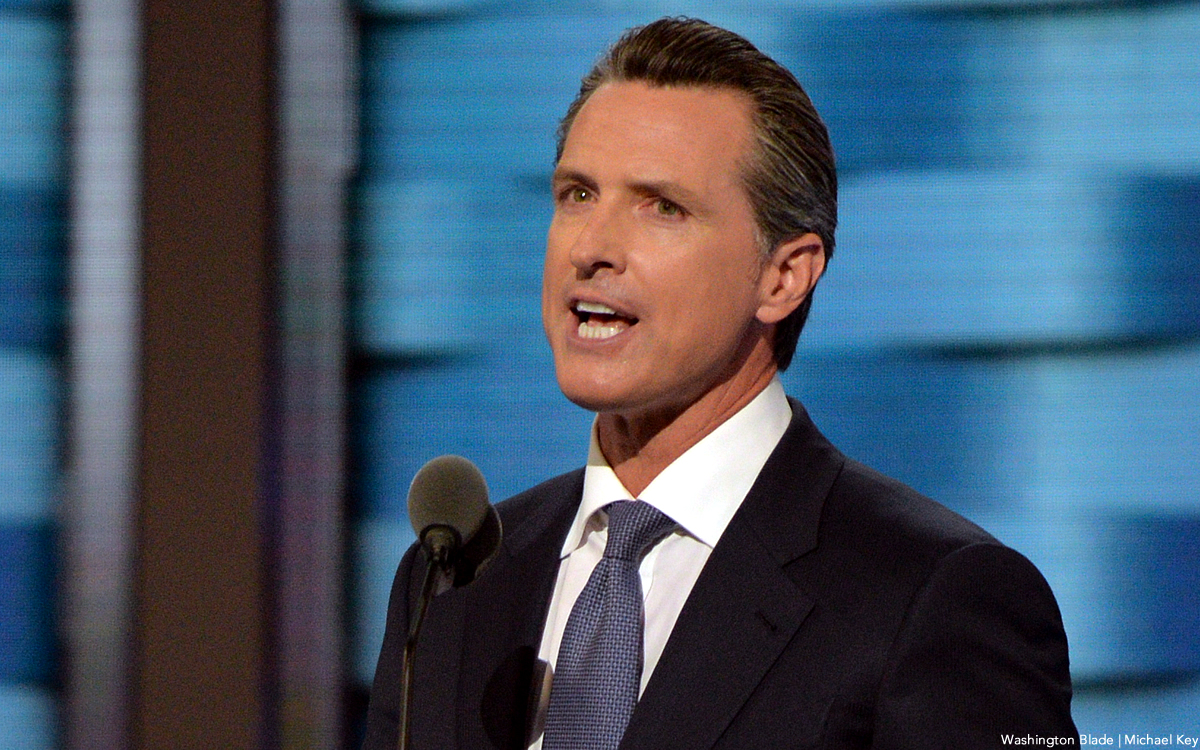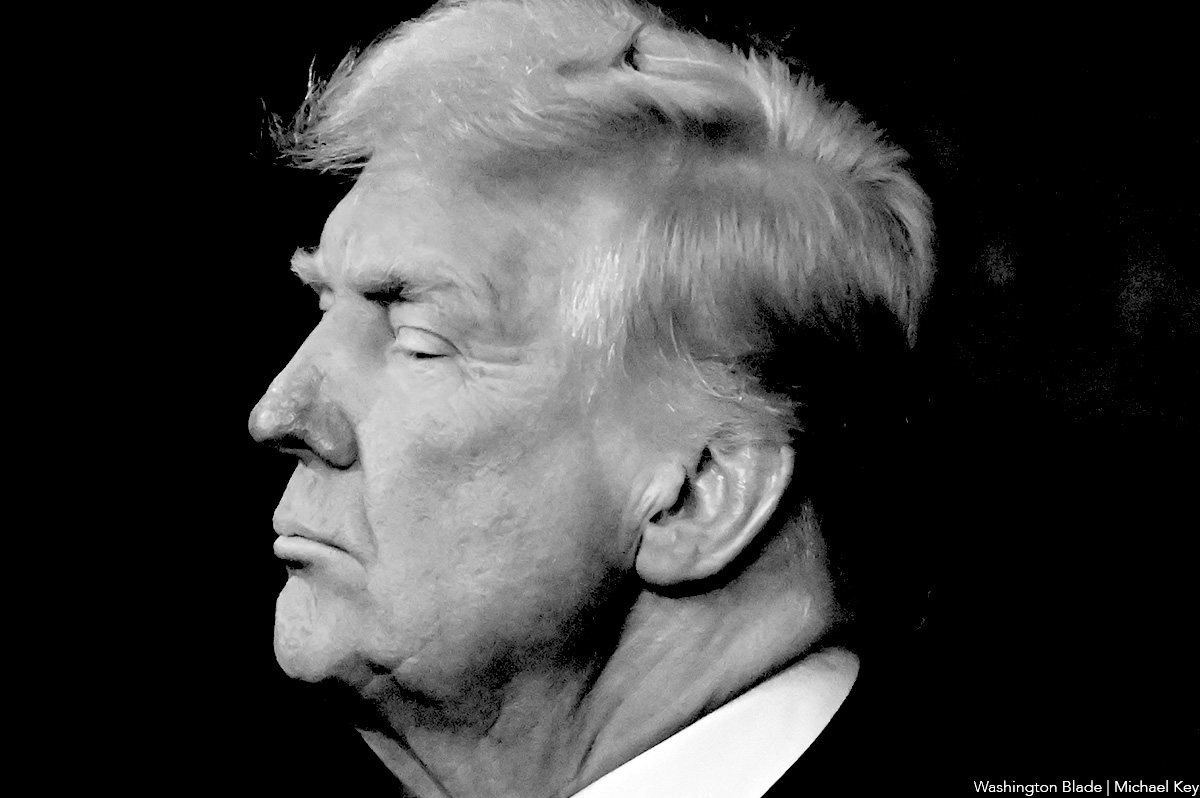Federal Government
Treasury Department endorses Asian Development Bank LGBTQ safeguard
Final vote expected in March 2023

The Treasury Department has endorsed an LGBTQ-specific Asian Development Bank safeguard.
The Washington Blade obtained a May 31 email that Alex Severens, director of the Treasury Department’s Office of Development Results and Accountability, sent to Council for Global Equality Chair Mark Bromley and Human Rights Campaign Government Affairs Director David Stacy.
Severens in the email said the Treasury Department “has considered this issue carefully and has received thoughtful input from a variety of stakeholders.”
“Treasury agrees with your recommendation to adopt a standalone gender and SOGIESC safeguard,” wrote Severens. “In order to protect all vulnerable groups, we also believe it important to include a more general safeguard for all vulnerable groups that promotes non-discrimination and inclusion of all people.”
The Asian Development Bank, which is based in the Philippines, seeks to promote economic and social development throughout the Asia-Pacific Region.
It held consultations on the proposed safeguard earlier this week. The Office of the U.N. High Commissioner for Human Rights and the AFL-CIO are among those that have endorsed the safeguard.
“United Nations Human Rights (OHCHR) strongly supports the need for a self-standing safeguard on gender equality that addresses the full range of rights of women and girls and the rights of LGBTIQ+ persons,” wrote Gabriel Alves de Faria in a June 7 letter in which the Office of the U.N. High Commissioner for Human Rights submitted.
The Treasury Department has not responded to the Blade’s request for comment. Chantale Wong, the U.S. director of the Asian Development Bank who is the first openly lesbian American ambassador, in April during an exclusive interview expressed support for the safeguard.
“In all the institutions, we come up with ensuring that any of our projects and our policies do no harm and maybe even improve the lives of the beneficiaries we try to serve,” said Wong. “Ultimately, it’s about economic development for these countries … we’ve always had labor standards, environmental standards, other social standards, social safeguards. You don’t go in and harm the people you’re trying to help.”
The Asian Development Bank board is expected to vote on the proposed safeguard in March.
Federal Government
UPenn erases Lia Thomas’s records as part of settlement with White House
University agreed to ban trans women from women’s sports teams

In a settlement with the Trump-Vance administration announced on Tuesday, the University of Pennsylvania will ban transgender athletes from competing and erase swimming records set by transgender former student Lia Thomas.
The U.S. Department of Education’s Office for Civil Rights found the university in violation of Title IX, the federal rights law barring sex based discrimination in educational institutions, by “permitting males to compete in women’s intercollegiate athletics and to occupy women-only intimate facilities.”
The statement issued by University of Pennsylvania President J. Larry Jameson highlighted how the law’s interpretation was changed substantially under President Donald Trump’s second term.
“The Department of Education OCR investigated the participation of one transgender athlete on the women’s swimming team three years ago, during the 2021-2022 swim season,” he wrote. “At that time, Penn was in compliance with NCAA eligibility rules and Title IX as then interpreted.”
Jameson continued, “Penn has always followed — and continues to follow — Title IX and the applicable policy of the NCAA regarding transgender athletes. NCAA eligibility rules changed in February 2025 with Executive Orders 14168 and 14201 and Penn will continue to adhere to these new rules.”
Writing that “we acknowledge that some student-athletes were disadvantaged by these rules” in place while Thomas was allowed to compete, the university president added, “We recognize this and will apologize to those who experienced a competitive disadvantage or experienced anxiety because of the policies in effect at the time.”
“Today’s resolution agreement with UPenn is yet another example of the Trump effect in action,” Education Secretary Linda McMahon said in a statement. “Thanks to the leadership of President Trump, UPenn has agreed both to apologize for its past Title IX violations and to ensure that women’s sports are protected at the university for future generations of female athletes.”
Under former President Joe Biden, the department’s Office of Civil Rights sought to protect against anti-LGBTQ discrimination in education, bringing investigations and enforcement actions in cases where school officials might, for example, require trans students to use restrooms and facilities consistent with their birth sex or fail to respond to peer harassment over their gender identity.
Much of the legal reasoning behind the Biden-Harris administration’s positions extended from the 2020 U.S. Supreme Court case Bostock v. Clayton County, which found that sex-based discrimination includes that which is based on sexual orientation or gender identity under Title VII rules covering employment practices.
The Trump-Vance administration last week put the state of California on notice that its trans athlete policies were, or once were, in violation of Title IX, which comes amid the ongoing battle with Maine over the same issue.
Federal Government
White House finds Calif. violated Title IX by allowing trans athletes in school sports
Education Department threatens ‘imminent enforcement action’

The Trump-Vance administration announced on Wednesday that California’s Interscholastic Federation and Department of Education violated federal Title IX rules for allowing transgender girls to compete in school sports.
In a press release, the U.S. Department of Education’s Office of Civil Rights threatened “imminent enforcement action” including “referral to the U.S. Department of Justice” and the withholding of federal education funding for the state if the parties do not “agree to change these unlawful practices within 10 days.”
The agency specified that to come into compliance; California must enforce a ban excluding transgender student athletes and reclaim any titles, records, and awards they had won.
Federal investigations of the California Interscholastic Federation and the state’s Department of Education were begun in February and April, respectively. The Justice Department sued Maine in April for allowing trans athletes to compete and refusing a similar proposal to certify compliance within 10 days.
Broadly, the Trump-Vance administration’s position is that girls who are made to compete against trans opponents or alongside trans teammates are unfairly disadvantaged, robbed of opportunities like athletics scholarships, and faced with increased risk of injury — constituting actionable claims of unlawful sex discrimination under Title IX.
This marks a major departure from how the previous administration enforced the law. For example, the Department of Education issued new Title IX guidelines in April 2024 that instructed schools and educational institutions covered by the statute to not enforce categorical bans against trans athletes, instead allowing for limited restrictions on eligibility if necessary to ensure fairness or safety at the high school or college level.
Sports aside, under former President Joe Biden the department’s Office of Civil Rights sought to protect against anti-LGBTQ discrimination in education, bringing investigations and enforcement actions in cases where school officials might, for example, require trans students to use restrooms and facilities consistent with their birth sex or fail to respond to peer harassment over their gender identity.
Much of the legal reasoning behind the Biden-Harris administration’s positions extended from the 2020 U.S. Supreme Court case Bostock v. Clayton County, which found that sex-based discrimination includes that which is based on sexual orientation or gender identity under Title VII rules covering employment practices.
A number of high profile Democrats, including California Gov. Gavin Newsom, have recently questioned or challenged the party’s position on transgender athletes, as noted in a statement by Education Secretary Linda McMahon included in Wednesday’s announcement.
“Although Gov. Gavin Newsom admitted months ago it was ‘deeply unfair’ to allow men to compete in women’s sports, both the California Department of Education and the California Interscholastic Federation continued as recently as a few weeks ago to allow men to steal female athletes’ well-deserved accolades and to subject them to the indignity of unfair and unsafe competitions.”
Federal Government
Trump’s dismantling of US foreign aid derails HIV prevention effort in Africa
FDA approved breakthrough preventative drug lenacapavir earlier this month

On June 18, the Food and Drug Administration approved a long-acting injectable for the prevention of HIV that could have a transformational impact on decades-long efforts to end the epidemic in the U.S. and abroad.
Offering robust protection with just two doses per year, lenacapavir has the potential to dramatically improve uptake and adherence compared to daily oral PrEP regimens like Truvada or Descovy, particularly for high risk populations living in places with poor health infrastructure or where stigma about HIV discourages frequent testing and clinic visits.
According to the New York Times, however, the rollout of lenacapavir for HIV prevention overseas has been stymied by the gutting of agencies, staff, programs, and funding dedicated to foreign aid and public health during President Donald Trump’s second term.
Among other moves, the administration has frozen or withdrawn nearly all U.S. foreign development assistance, dismantled the U.S. Agency for International Development and reduced the size of its workforce by more than 95 percent, and shuttered key public health units housed under the U.S. Department of Health and Human Services, the National Institutes of Health, the Centers for Disease Control and Prevention, and the FDA.
As a result, the Times reports, HIV programs across the African continent have been “scrambling to procure drugs that the United States once supplied, replace lost nurses and lab technicians, and restart shuttered programs to prevent new infections.”
Experts fear HIV infection rates are climbing in some of the hardest-hit countries, but since the U.S. pulled funding for data collection and monitoring, there is no way to know for sure.
Historically, the U.S. has provided about 75 percent of all global spending on efforts to fight the epidemic, a reflection of the extent to which there was broad bipartisan support for the allocation of resources for this purpose through programs like the President’s Emergency Plan for AIDS Relief. Trump continued this legacy in his first term, launching the ambitious Ending the HIV Epidemic initiative that was continued under former President Joe Biden.
After returning to the White House, however, the president and his administration have justified their slash-and-burn cuts to the federal government’s work in international development and public health by arguing that funds and resources sent to overseas nations are too often pilfered by corrupt foreign state actors or wasted on ineffectual programs.
Trump and his allies also believe the U.S. should no longer be expected to shoulder such a disproportionate share of the responsibility for foreign aid, and that other countries are likelier to step up and contribute more in response to America’s retreat.
















